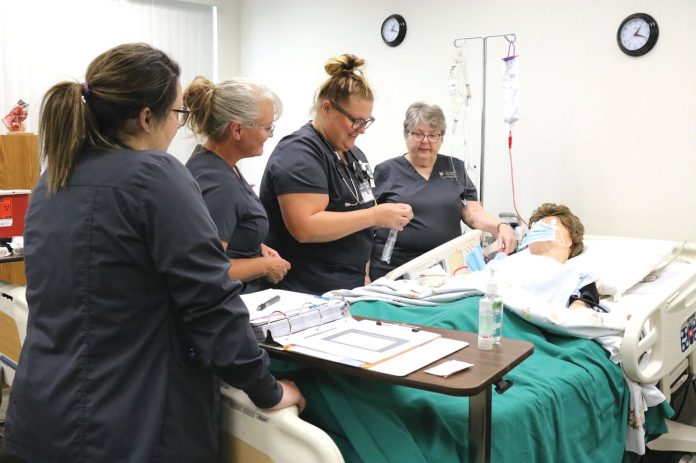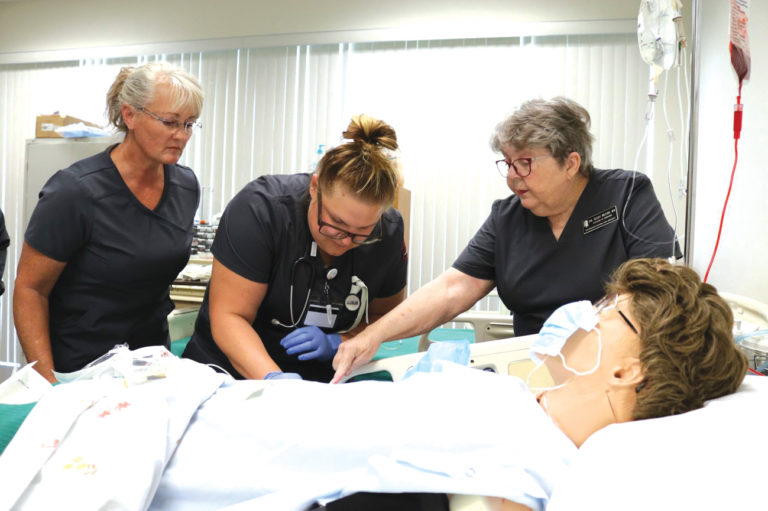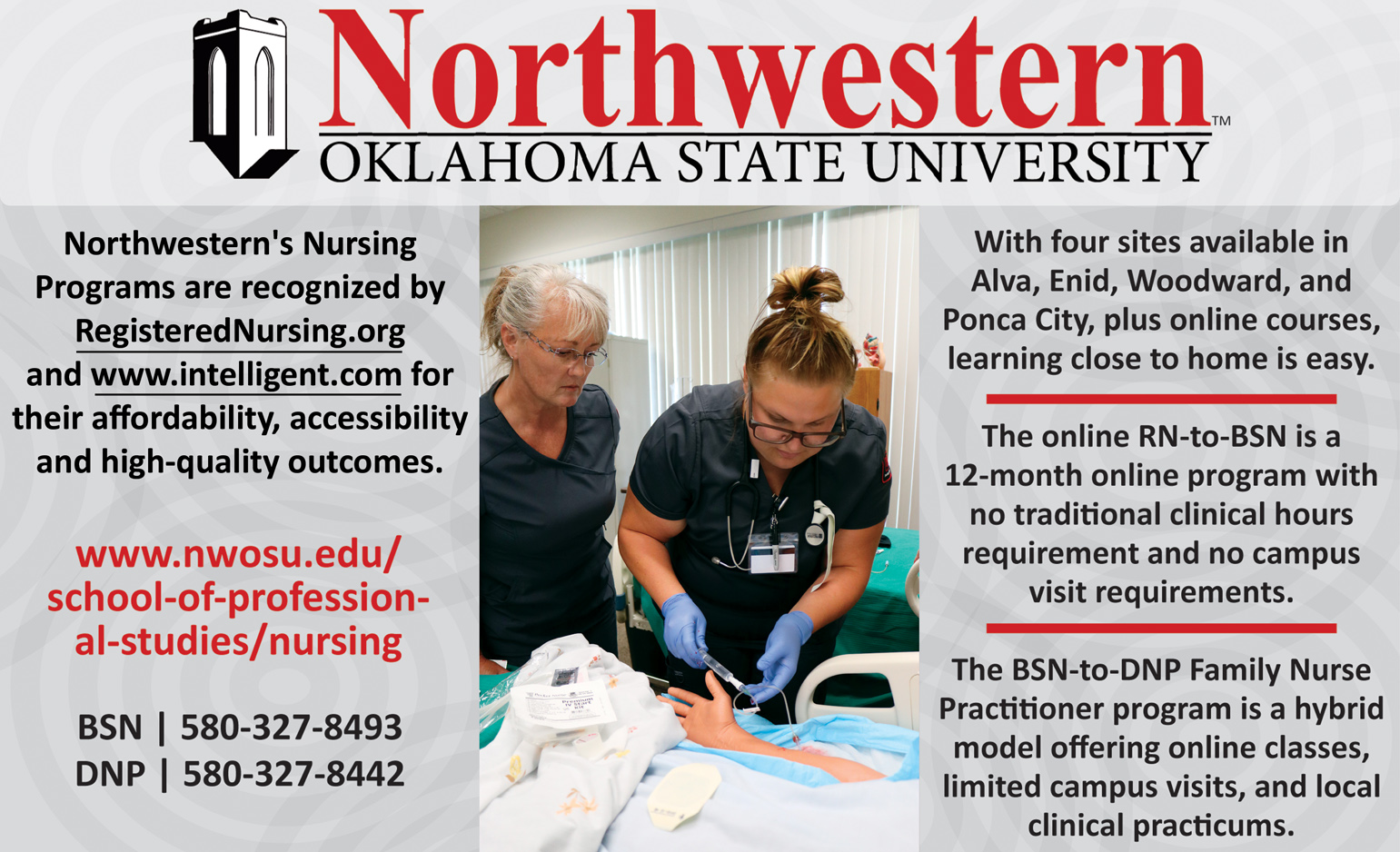Northwestern forging tomorrow’s nurses
Nursing has always been a profession that has stood in the gap, taking care of those who need it the most.
So when the Covid pandemic came, leaders at Northwestern Oklahoma State knew their students needed their education now more than ever.
“One of the things we’ve been able to do since the pandemic is we’re continuing to forge ahead and maintain face-to-face classes and clinicals,” said Shelly Wells, PhD, MBA, APRN-CNS, ANEF, Division of Nursing Chair & Professor. “That’s in all three of our programs.”
Tight-knit clinical partner relationships coupled with one of the state’s lowest student-to-faculty ratios kept Northwestern students in the classroom and at the bedside during a once-in-a-lifetime event. (story continues below)

Francis Tuttle Technology Center
Practical Nursing Instructor
Rockwell Campus
Closes: 8/4/21 (noon CST on closing date)
Select the following link for extended job description & to complete online application with district. Application must be submitted online with the district in order to be considered for position: www.francistuttle.edu/discover/jobs
Francis Tuttle offers a comprehensive benefit package for full-time employment to include paid health and dental insurance and 100% contribution into the Oklahoma Teachers Retirement System.
Only candidates of interest will be contacted. EOE
Long-known as one the most affordable nursing programs in the state, Northwestern features nationally-award-winning faculty and small class sizes.
It’s no wonder there’s such high interest in the school’s three different options.
The traditional BSN program is offered at four different sites including Alva, Enid, Woodward and University Center in Ponca City.
The online RN to BSN program offers a 12-month cycle with no clinical hours and a liberal course transfer policy. It was rated the #1 RN-to-BSN program in Oklahoma in 2020 by www.intelligent.com.
The hybrid BSN to DNP program has also taken off. “There’s been a lot of demand for both online and hybrid,” Wells said. “We are one of only two public universities that offer a family nurse practitioner emphasis and we are the only program in the state that has an emphasis on rural nursing and the needs of rural communities.”
The decision to stay in class and the hospital came with much planning and cooperation.
A Nightingale Award of Nursing Excellence recipient from the Oklahoma Nurses Association, Wells takes pride in her low faculty-to-student ratio and the relationships her faculty has forged at healthcare facilities across northwestern Oklahoma.
Allowing students to learn in their communities creates a natural draw.
“Part of it is because we are offered at four different sites so we have limited numbers at each site,” Wells explained. “We’re able to maintain that social distancing in the classroom. Part of it is the partnerships we’ve established with our clinical agencies.”
This spring some of those clinical agencies are supporting paid internships for senior nursing students.
“The hospitals are paying these students to do their clinical hours,” Wells said.
The BSN programs are accredited by the Accreditation Commission for Education in Nursing, Inc. (ACEN) and is approved by the Oklahoma Board of Nursing (OBN). The BSN-to-DNP program is accredited by the Commission for Collegiate Education in Nursing (CCNE) and approved by the Oklahoma Board of Nursing.
With more than 30 years of teaching experience in nursing, Wells has closely followed the national trend calling for more BSN-prepared nurses.
“All the hospitals we have talked to in Oklahoma prefer to hire BSN-prepared nurses and they are encouraging their staff to go back and complete their BSN,” Wells said. “We’re seeing those numbers increase.”
For More information visit: https://www.nwosu.edu/















